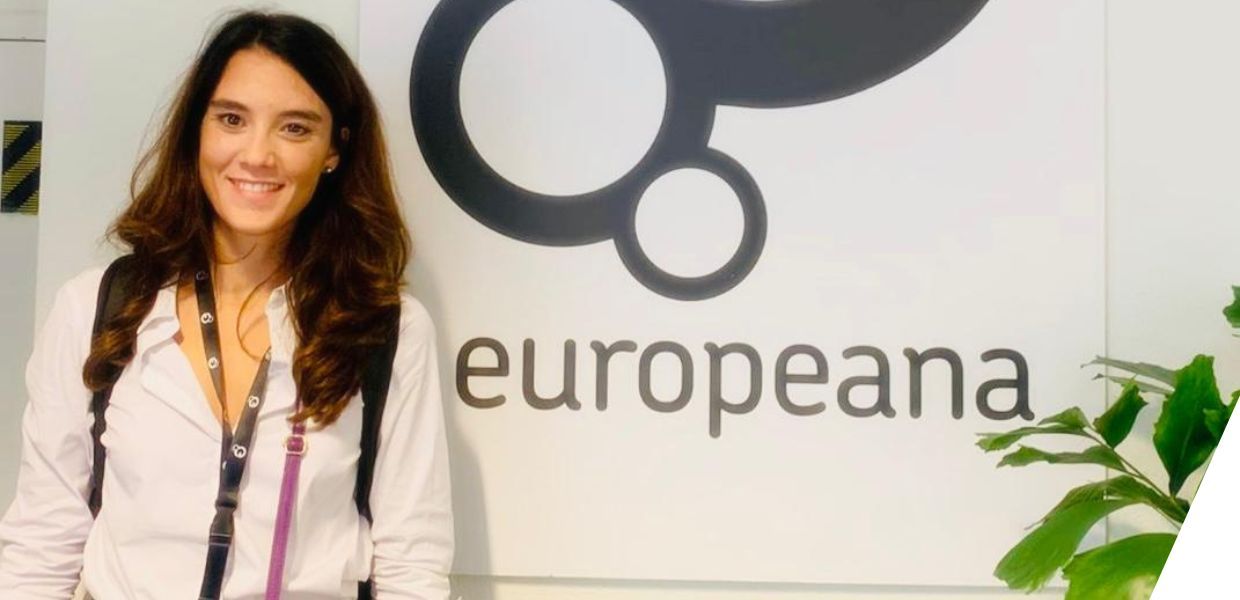Please tell us about yourself.
My name is Carola Carlino. I am a project manager and currently work at DM Cultura, an Italian company that has been active in the museum and library sector for more than 30 years, supporting cultural institutions in their digital transformation.
For more than a year I have been managing an important digitisation project, financed with The National Recovery and Resilience Plan (PNRR) funds, which involves the transformation of physical museum, archival, library, photographic and microfilm resources into digital resources. This involves the management of more than 50 digitisation sites spread throughout Italy, including museums, libraries, archives and archaeological parks.
Before this role, and after earning a master's degree in philological disciplines, I pursued a PhD in Digital Humanities, with a focus on computational linguistics and digital storytelling applied to the cultural sector. The PhD allowed me to form myself as a digital humanist and to investigate, from then on, everything related to the digitalisation and digitisation of cultural heritage. Examples and practices of gamification, Natural Language Processing, AI-based approaches, storytelling experiences, best practices for institutional communication and improvement of user engagement are just some of the aspects that I explored during my doctoral studies and which gave me a more or less comprehensive view of the sector in which I intended to enter and to increase my skills and knowledge.
Why did you join the Europeana Network Association?
In the first year of my doctoral course in 2018, I realised that to understand best what contribution I could make to the scientific community, it was necessary to look not only at Italian models but also at European ones. I wondered how and if the scientific communities in the rest of the world were addressing the same questions that I was asking myself with my research.
Europeana seemed to me to be the most suitable answer to my questions. After attending a few events and fully understanding what its mission was, I decided to become an ENA member and, shortly thereafter, to become even more active by becoming a member of the Communicators Community Steering Group, one of the seven specialist communities which ENA members can join.
How has being an ENA member benefitted you professionally or personally?
Being an ENA member has allowed me to grow a lot, first and foremost personally. It might seem strange, because for many years I only saw faces of people living in different parts of the world through the screen of a PC, but the strong sense of community that was created always made me want to work harder to make my contribution, however modest, to the whole Initiative.
Active participation in events, the occasions when I was a speaker, and the responsibilities I voluntarily took on in carrying out a small task that was part of a larger project, allowed me to improve my communication and interpersonal skills with diverse and international ‘colleagues’ and audiences.
Moreover, the very different backgrounds and professionalism of the people with whom I have interacted have enabled me to activate a cultural and professional exchange that has contributed to my professional growth. Being directly involved in discussions concerning many of the issues I deal with day-to-day at work has given me a broader view of issues and helped me to develop a critical sense enriched by comparing different approaches and solutions.
How have you got involved in the Europeana Network Association?
My first real involvement in ENA was participation in the Task Force Europeana as a Powerful Platform for Storytelling, based on the voluntary and collective work of community members and aimed at identifying seven principles of digital storytelling for cultural heritage.
Subsequently, as I mentioned earlier, I became a member of the Communicators' Community Group. For the past few years, alternating with other members, I have held the role of chair for this group, which, among other activities, organises monthly meetings and webinars, runs a newsletter, develops resources around digital storytelling and provides support, where possible, to the other ENA communities.
My career in Europeana then saw a major achievement this year with my election to the ENA Members Council, an event that marks a milestone in the journey I am on with Europeana and one that I will strive to honour to the best of my ability.
In parallel, for a couple of years, I have been a mentor for those who enroll in the Digital Storytelling Festival’s online creative residency to learn how to write heritage stories to be published on social media. I still remember the excitement I experienced during my first mentoring experience, having been a Festival participant myself the previous year!
What is your best ENA memory/experience?
The best memory I have so far of my ENA experience is related to attending the EuropeanaTech Conference, which took place last year in The Hague. It was exciting to meet all the people I have seen for a long time through a PC screen in person and to explore Europeana’s headquarters. In addition, the conference was an opportunity to take part in discussions that enriched my knowledge about digital cultural heritage, thanks to the participation of many professionals in the field.
Why should someone join ENA?
In my view and experience, it can be important to be part of such a well-structured network, full of interesting people with whom you can exchange ideas and opinions and together build something new and useful for yourself and others. Within ENA, the contribution of each individual member is crucial, and everyone can find his or her own place and devote himself or herself to what he or she is most passionate about.


